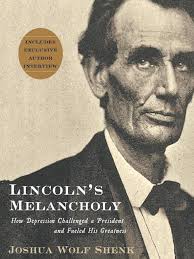A good list on the subject is available from the National Alliance on Mental Illness, NH branch. A few of those on the list:
Art Buchwald, Columnist
- Depression
Drew Carey, Actor
- Depression
Winston Churchill
- “Had he been a stable and equable man, he could never have inspired the nation. In 1940, when all the odds were against Britain, a leader of sober judgment might well have concluded that we were finished,” wrote Anthony Storr about Churchill’s bipolar disorder in Churchill’s Black Dog, Kafka’s Mice, and Other Phenomena of the Human Mind.
Charles Dickens, Writer
- One of the greatest authors in the English language suffered from clinical depression, as documented in The Key to Genius: Manic Depression and the Creative Life by D. Jablow Hershman and Julian Lieb, and Charles Dickens: His Tragedy and Triumph by Edgar Johnson.
Tony Dow, Actor
- Depression
Patty Duke, Actress
-
- Bipolar disorder
- The celebrated artist’s bipolar disorder is discussed in The Key to Genius: Manic Depression and the Creative Life by D. Jablow Hershman and Julian Lieb and Dear Theo, The Autobiography of Van Gogh.
- Bipolar disorder
- Depression
The Academy Award-winning actress told of her bipolar disorder in her autobiography and made-for-TV move Call Me Anna and A Brilliant Madness: Living with Manic-Depressive Illness, co-authored by Gloria Hochman.
Ted Turner, Businessman
Vincent Van Gogh, Painter
Sol Wachtler, Former New York State Chief Judge
Mike Wallace, Television Journalist

